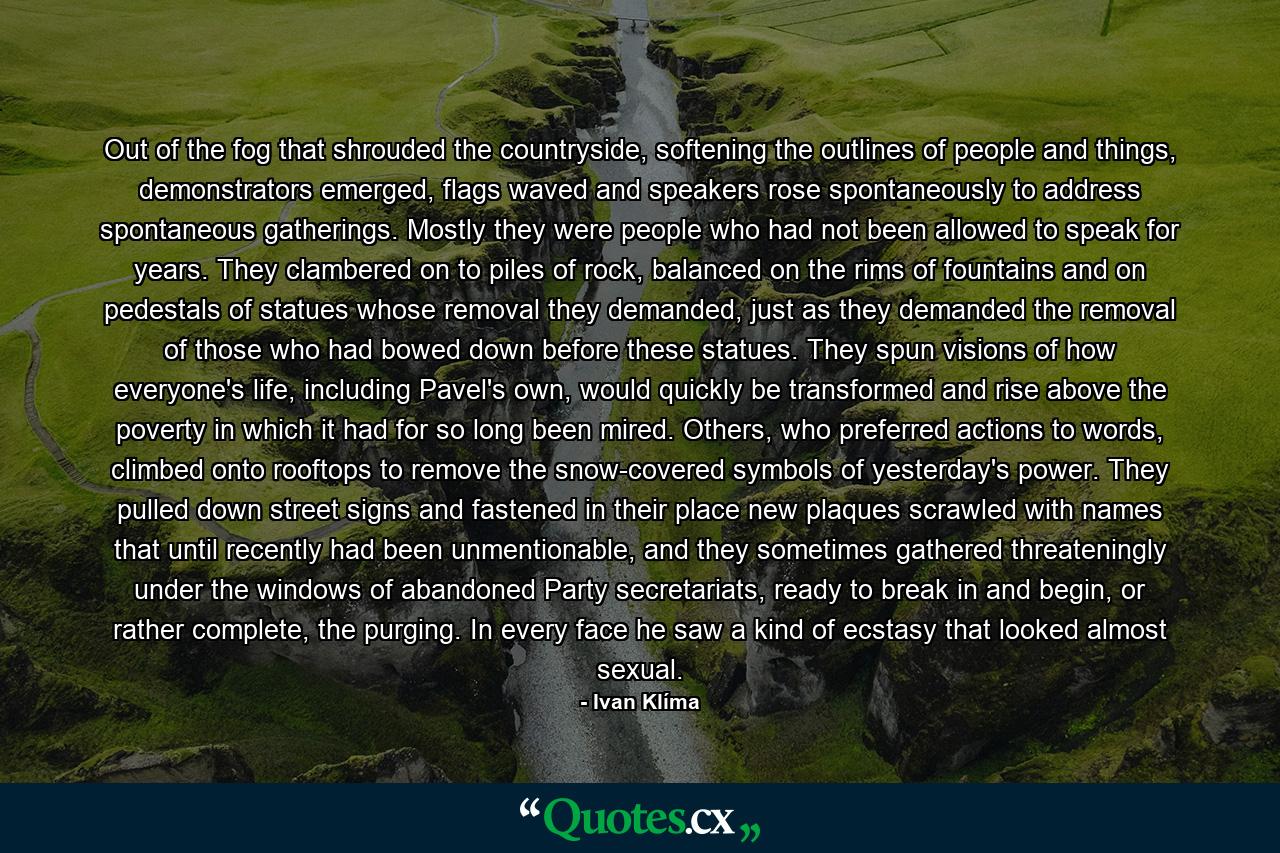Out of the fog that shrouded the countryside, softening the outlines of people and things, demonstrators emerged, flags waved and speakers rose spontaneously to address spontaneous gatherings. Mostly they were people who had not been allowed to speak for years. They clambered on to piles of rock, balanced on the rims of fountains and on pedestals of statues whose removal they demanded, just as they demanded the removal of those who had bowed down before these statues. They spun visions of how everyone’s life, including Pavel’s own, would quickly be transformed and rise above the poverty in which it had for so long been mired. Others, who preferred actions to words, climbed onto rooftops to remove the snow-covered symbols of yesterday’s power. They pulled down street signs and fastened in their place new plaques scrawled with names that until recently had been unmentionable, and they sometimes gathered threateningly under the windows of abandoned Party secretariats, ready to break in and begin, or rather complete, the purging. In every face he saw a kind of ecstasy that looked almost sexual.
